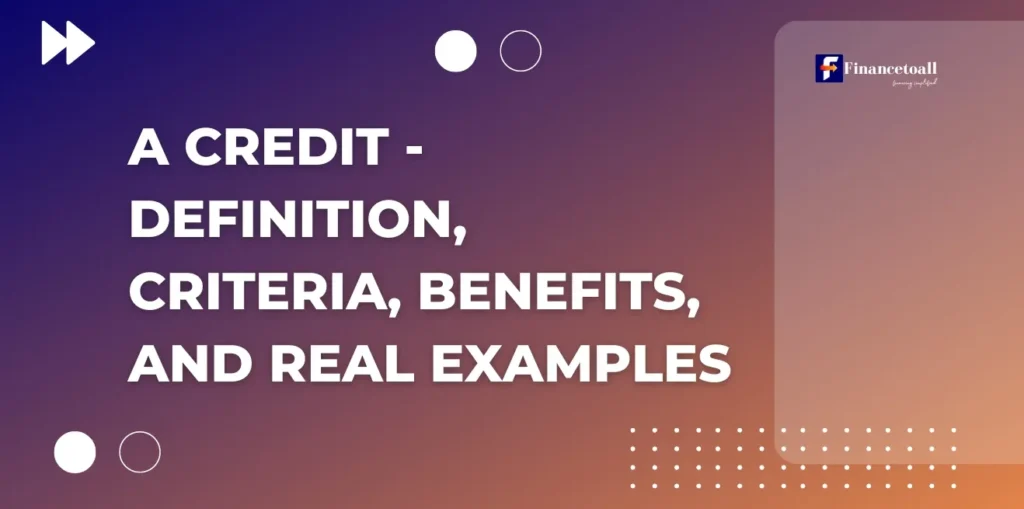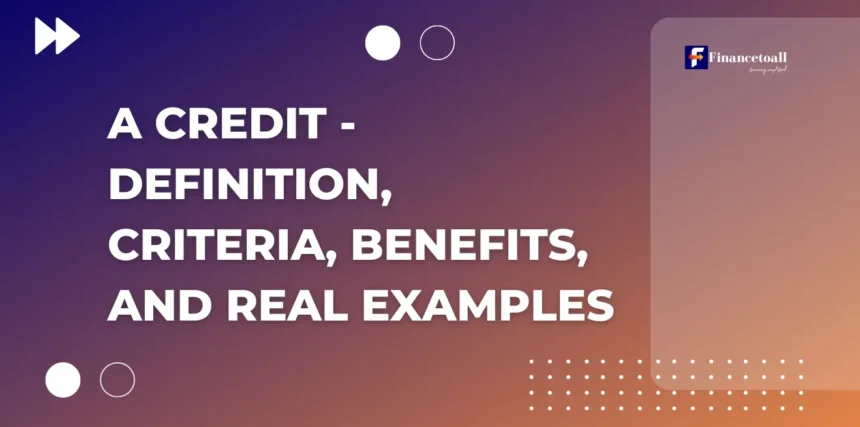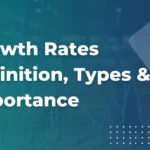Understanding and Achieving A Credit: A Pathway to Financial Excellence
In today’s World, having excellent credit, often referred to as “A credit,” is more important than ever. Whether you’re applying for a mortgage, securing a personal loan, or simply looking to enjoy better financial products, “A credit” can open many doors. This article will guide you through what it means to have “A credit,” how to achieve it, and the benefits it brings.
What is A Credit?
“A credit” refers to a credit rating that falls within the top tier of credit scores, typically above 720 or 740, depending on the credit scoring model. This rating is a reflection of your financial reliability and responsibility, indicating to lenders that you are a low-risk borrower.
Why is A Credit Important?
Having “A credit” can significantly impact your financial life. With this rating, you gain access to lower interest rates, better loan terms, and premium financial products. Additionally, it can influence your ability to rent an apartment or even secure a job, as landlords and employers often check credit scores.
Criteria for A Credit
Achieving “A credit” requires meeting several key criteria:
- Credit Score Range: Typically, “A credit” starts at a score of 720 or higher.
- Payment History: Maintaining an impeccable payment history is crucial. Late or missed payments can quickly lower your score.
- Credit Utilization: Keeping your credit utilization below 30% of your available credit is essential for maintaining a high score.
- Length of Credit History: The longer your credit history, the better. Lenders prefer to see a well-established history of responsible credit use.
- Credit Mix: A diverse mix of credit types—such as credit cards, mortgages, and installment loans—can boost your score.
- Recent Credit Inquiries: Avoid frequent credit inquiries and new credit applications, as these can lower your score temporarily.

Benefits of A Credit
The advantages of having “A credit” are substantial:
- Lower Interest Rates: Borrowers with “A credit” often qualify for the lowest interest rates on loans and credit cards, saving thousands of dollars over time.
- Better Loan Terms: You can access more favorable loan terms, including longer repayment periods and higher loan amounts.
- Premium Financial Products: “A credit” opens the door to exclusive credit cards, rewards programs, and higher credit limits.
- Rental and Employment Opportunities: Landlords and employers may favor candidates with strong credit, giving you an edge in competitive markets.
How to Achieve and Maintain A Credit
Reaching and keeping “A credit” requires consistent effort and smart financial habits:
- Consistent Bill Payments: Always pay your bills on time. Late payments can severely damage your credit score.
- Monitoring Credit Reports: Regularly check your credit reports for errors or inconsistencies that could negatively affect your score.
- Managing Debt: Keep your debt levels low and manage credit card balances effectively. Aim to pay off balances in full each month.
- Avoiding Unnecessary Credit: Resist the temptation to apply for unnecessary credit cards or loans, which can lead to hard inquiries on your credit report.
- Financial Planning: Implement strong financial planning and budgeting to avoid missed payments and high credit utilization.
Common Myths About A Credit
There are several misconceptions about “A credit” that need debunking:
- Myth: Carrying a balance on credit cards improves your credit score.
- Reality: Paying off your balance in full each month is better for your score.
- Myth: Your income directly impacts your credit score.
- Reality: While income can affect your ability to get credit, it does not directly influence your credit score.
Impact of Economic Conditions on A Credit
Economic changes can influence even the best credit scores:
- Economic Downturns: During recessions, your credit score might drop due to changes in your financial situation, even if you have “A credit.”
- Lending Environment: Lenders may tighten their criteria for “A credit” borrowers in challenging economic times, making it harder to secure the best terms.
Real-Life Examples and Case Studies
Consider these scenarios to see how “A credit” can impact financial decisions:
- Home Buying: A person with “A credit” qualifies for a mortgage with a low interest rate, saving them thousands over the life of the loan compared to someone with lower credit.
- Personal Loans: When applying for a personal loan, an “A credit” borrower receives a better rate and terms than those with lower credit scores, allowing for more manageable repayments.
Conclusion
Maintaining “A credit” is a journey that requires dedication to good financial practices. The benefits—lower interest rates, better loan terms, and access to premium products—make the effort worthwhile. By following the steps outlined in this article, you can achieve and maintain “A credit,” securing your financial future.
Frequently Asked Questions (FAQ) About A Credit
Q.1 What is considered “A credit”?
“A credit” typically refers to a credit score that falls in the excellent range, usually 720 or higher. It indicates a strong financial history, reliable payments, and low credit risk.
Q.2 How can I improve my credit score to achieve “A credit”?
To improve your credit score:
. Pay all bills on time.
. Keep credit card balances low (ideally below 30% of your credit limit).
. Regularly check your credit report for errors.
. Avoid applying for new credit too often.
. Maintain a diverse mix of credit accounts, such as credit cards, installment loans, and mortgages.
Q.3 Why is having “A credit” important?
Having “A credit” allows you to qualify for the best financial products, such as lower interest rates on loans and credit cards, better loan terms, and access to exclusive financial offers. It can also positively impact your ability to rent an apartment or get hired for certain jobs.
Q.4 How long does it take to achieve “A credit”?
The time it takes to achieve “A credit” depends on your current financial situation. If you are just starting to build credit, it could take several years of consistent, positive credit behavior. However, if your credit is already strong, maintaining good habits can help you achieve “A credit” more quickly.
Q.5 Does having “A credit” guarantee loan approval?
While having “A credit” significantly increases your chances of being approved for loans, approval is not guaranteed. Lenders also consider factors like your income, employment stability, and debt-to-income ratio when making decisions.
Q.6 Can I still have “A credit” if I carry a small balance on my credit cards?
Yes, you can still have “A credit” if you carry a small balance on your credit cards, as long as you consistently make payments on time and keep your credit utilization low. However, paying off your balance in full each month is better for your financial health and can help maintain a strong credit score.
Q.7 How often should I check my credit score to maintain “A credit”?
It’s a good idea to check your credit score at least once a month. Many financial institutions and credit card issuers offer free credit monitoring services that allow you to track your score regularly.
Q.8 Will closing old credit accounts affect my “A credit” score?
Closing old accounts can affect your credit score, as it reduces your available credit and can shorten your credit history, both of which can lower your score. It’s often better to keep old accounts open, especially if they have a long history of positive credit usage.
Q.9 Does a higher income improve my chances of achieving “A credit”?
No, your income does not directly impact your credit score. However, a higher income can make it easier to manage debt and meet financial obligations, indirectly helping you maintain or achieve “A credit.”
Q.10 Can a credit report error prevent me from achieving “A credit”?
Yes, errors on your credit report can negatively impact your credit score. It’s important to regularly review your credit reports from all three major bureaus (Equifax, Experian, and TransUnion) and dispute any inaccuracies promptly.
Q.11 What happens to my “A credit” during an economic downturn?
During an economic downturn, your credit score may be affected if you face financial difficulties, such as job loss or increased debt. Maintaining “A credit” in tough economic times requires careful budgeting, reducing unnecessary expenses, and staying on top of payments.
Q.12 Is “A credit” permanent once achieved?
No, your credit score is not permanent. It fluctuates based on your credit behavior, such as payment history, credit utilization, and new credit inquiries. To maintain “A credit,” you need to consistently practice responsible financial habits.



![American Express Gold Card Review for [United States]](https://financetoall.com/wp-content/uploads/2024/08/AMERICAN-EXPRESS-GOLD-CARD-Review-150x150.webp)




